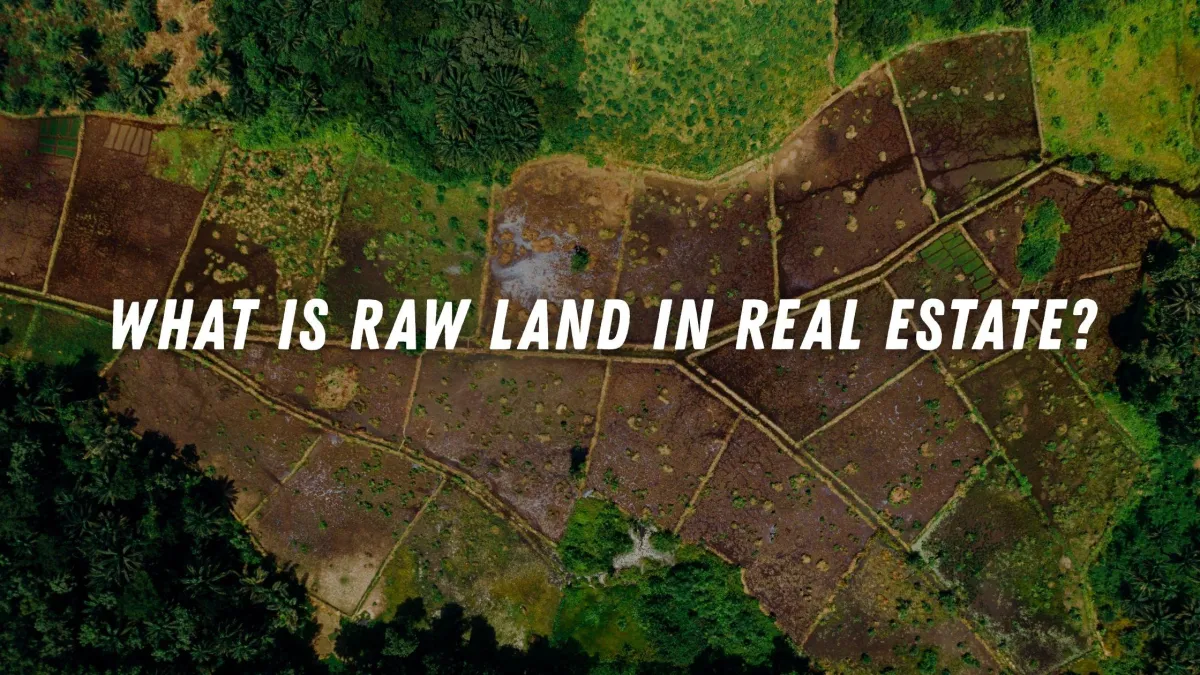
What Is Raw Land in Real Estate
In the world of real estate investing, raw land is a term that often surfaces, particularly for builders and developers looking to maximize their investments. But what exactly is raw land, and why is it significant for those wanting to buy land in Texas? This guide explores the concept of raw land, its potential, and how it relates to securing prime land in Texas or land for builders ready to take on new projects.
Defining Raw Land
Raw land refers to untouched, undeveloped property. Unlike improved land that may have roads, buildings, or utilities, raw land is in its natural state. It’s often seen as a blank slate with no immediate development.
While raw land lacks infrastructure, it holds immense potential for those with the vision to transform it. Builders, developers, and investors consider it a valuable commodity due to its versatility and affordability compared to developed lots.
Why Invest in Raw Land?
Investing in raw land offers numerous benefits, particularly in Texas. The state's thriving economy, population growth, and diverse landscapes make it a hotspot for land investments. Here’s why raw land is worth considering:
1. Affordability
Raw land is typically cheaper than developed property, making it an attractive option for those looking to buy land in Texas without breaking the bank.
2. Flexibility
With no pre-existing structures, raw land provides flexibility for builders and investors to design projects from the ground up.
3. Long-Term Appreciation
Raw land in growing areas like Texas can appreciate significantly over time, especially in markets experiencing urban expansion.
4. Diverse Development Opportunities
Whether you’re planning residential housing, commercial projects, or recreational spaces, raw land allows for various development opportunities.
Types of Raw Land Investments
If you're considering raw land investments in Texas, it's essential to understand the types of land available:
Agricultural Land
Often located on the outskirts of urban areas, agricultural land is suitable for farming or ranching but can be rezoned for development.
Residential Land
This includes parcels designated for building homes or residential communities. Developers often look for land for builders in this category.
Commercial Land
Raw land near highways, city centers, or industrial zones is ideal for commercial development, including retail centers, offices, and warehouses.
Key Factors to Consider Before Buying Raw Land
Purchasing raw land requires careful consideration, especially when planning to buy land in Texas for development. Here are the key factors to evaluate:
1. Zoning and Permits
Understand the zoning regulations to ensure the land is suitable for your intended project. Rezoning can be a lengthy and expensive process.
2. Utilities and Infrastructure
While raw land typically lacks utilities, finding parcels with nearby access to water, electricity, and sewage systems is crucial. Alternatively, buy land with utilities in Texas to save time and money on development.
3. Location
The value of raw land largely depends on its location. Prime land in Texas near growing urban centers or major transportation routes is more likely to appreciate quickly.
4. Topography and Soil Quality
Evaluate the land’s physical characteristics, including slope, drainage, and soil composition, to ensure it’s suitable for building.
5. Market Trends
Research the local real estate market to identify areas with high demand for development.
Raw Land in Texas: Opportunities for Builders
Texas is one of the most popular states for land investments due to its size, economic opportunities, and diversity of landscapes. Whether you're looking for suburban plots or vast rural expanses, the Lone Star State offers abundant opportunities for builders and developers.
Hotspots for Raw Land in Texas
Dallas-Fort Worth Area: Ideal for residential and commercial projects due to rapid urbanization.
Austin Suburbs: High demand for housing in this tech-driven city makes suburban land appealing.
Houston Outskirts: Affordable land near this major metro area is perfect for large-scale developments.
San Antonio Region: A mix of urban and rural opportunities for builders seeking versatility.
Tips for Buying Raw Land in Texas
To make the most of your raw land investment, follow these tips:
1. Work with Local Experts
Partner with real estate agents or land specialists who understand the Texas market. They can help identify prime land in Texas and navigate zoning requirements.
2. Secure Financing
Unlike traditional home loans, raw land often requires specialized financing. Research lenders experienced in raw land purchases.
3. Perform Due Diligence
Conduct a thorough evaluation of the property, including environmental tests, land surveys, and title checks.
4. Start Small
If you're new to land investments, consider starting with smaller parcels before scaling up to larger projects.
The Future of Raw Land Development
As Texas continues to grow, raw land will remain a valuable asset for builders, developers, and investors. The ability to transform untouched parcels into thriving residential or commercial spaces makes raw land an exciting opportunity for those ready to invest.
Whether you’re looking to buy land in Texas for a housing development or a commercial project, raw land offers the potential to create something extraordinary. By understanding its unique challenges and opportunities, you can turn a blank slate into a lucrative venture.
Conclusion
Raw land represents the ultimate opportunity in real estate—a chance to start fresh and build from the ground up. For builders and developers, it’s a pathway to creating value in a booming market like Texas. With proper planning, market research, and strategic execution, investing in raw land can be a rewarding experience.
Looking to purchase land for builders or buy land with utilities in Texas? Start by identifying your goals, researching locations, and partnering with professionals who can guide you through the process. The opportunities in Texas are endless, and raw land could be your next big success.
Follow Us:
